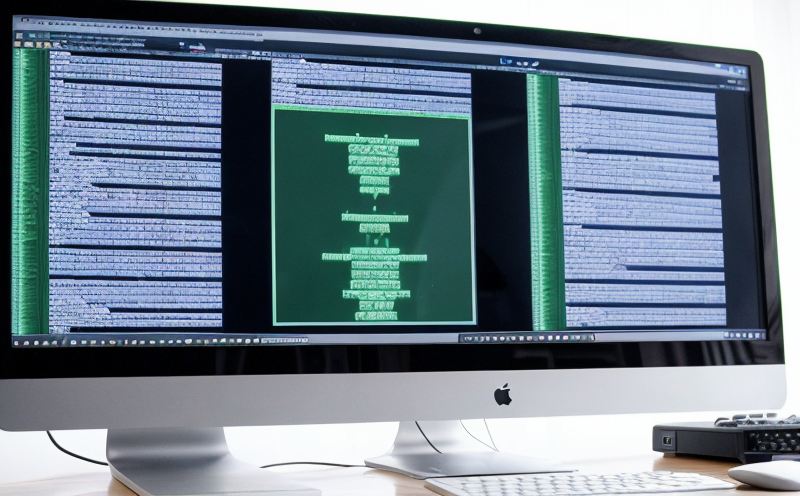Input Validation and Sanitization Testing in Code Analysis
In today's digital landscape, software security is paramount to protect against vulnerabilities that can be exploited by malicious actors. One of the most critical aspects of securing code is ensuring proper input validation and sanitization. These processes prevent attacks such as injection flaws (e.g., SQL Injection, Command Injection), cross-site scripting (XSS), and buffer overflows.
Input validation involves checking user inputs to ensure they conform to expected formats and constraints before processing them further in the application. This helps mitigate risks associated with incorrect or malicious data. On the other hand, input sanitization ensures that user inputs are processed safely by removing potentially dangerous characters or patterns from the data received.
Effective implementation of these practices is essential for maintaining robust security measures within your software applications. Failure to properly validate and sanitize inputs can lead to serious consequences including unauthorized access to sensitive information, denial-of-service attacks, and other forms of data breaches. Implementing comprehensive testing protocols ensures that any potential weaknesses are identified early in the development lifecycle.
At Eurolab, we provide expert services aimed at identifying security flaws related to improper input handling through rigorous analysis methods tailored specifically towards your unique requirements. Our team leverages both static and dynamic techniques to uncover hidden risks associated with inadequate validation controls across various programming languages including but not limited to Java, C#, Python, JavaScript among others.
Our approach begins by reviewing the source code for common patterns indicative of poor security practices related to input processing. This includes examining variable declarations, function calls involving user-supplied data, and any other areas where external inputs interact with internal logic within your application. Once identified, these issues are prioritized based on their potential impact on overall system integrity.
Following identification, we conduct detailed assessments using automated tools designed to simulate real-world attack vectors while also manually reviewing suspicious code sections for more nuanced threats that may not be captured by automated means alone. Throughout this process, our experts closely monitor adherence to relevant international standards such as OWASP guidelines or NIST recommendations which provide best practices for secure coding.
The results of our analyses are presented in clear reports outlining each discovered vulnerability along with recommended remediation steps necessary to address them effectively. These reports serve not only as documentation but also serve as valuable training materials for developers working on similar projects going forward.
Industry Applications
The importance of input validation and sanitization cannot be overstated across numerous industries where sensitive information is processed electronically. From financial institutions handling transactions, healthcare providers managing patient records to e-commerce platforms processing orders; every sector faces unique challenges when it comes to ensuring secure interactions between users and systems.
- Financial Services: Banks and other financial entities must protect customer account details from unauthorized access via web forms or APIs. Proper validation ensures that only valid transaction amounts are processed without exposing internal databases to SQL injection attacks.
- Healthcare Providers: Protecting patient health records stored digitally requires stringent security measures against data theft through XSS attacks or other vectors. Ensuring proper sanitization helps maintain compliance with HIPAA regulations while safeguarding personal health information (PHI).
- E-Commerce Platforms: Online retailers need to verify product details and customer inputs accurately before processing payments securely. Improper validation could result in fraudulent purchases or payment card information being exposed.
Regardless of the specific industry, all organizations dealing with electronic communications must prioritize robust security practices during software development cycles. By integrating input validation and sanitization testing early on, businesses can significantly reduce their risk exposure while enhancing customer trust through transparent communication about adopted security measures.
At Eurolab, we pride ourselves on delivering exceptional quality assurance services that go beyond basic compliance checks. Here are some key advantages of choosing our input validation and sanitization testing service:
- Comprehensive Coverage: Our experienced professionals review your entire source codebase comprehensively to ensure no corner is left unturned in terms of identifying potential security risks.
- Expert Guidance: Leveraging cutting-edge tools combined with deep industry knowledge allows us to provide tailored advice on how best to implement secure coding practices within your existing environment.
- Collaborative Approach: We work closely with your team throughout the entire process, offering ongoing support and guidance as needed. This ensures that all parties involved have a clear understanding of the steps required for successful implementation.
- Rapid Turnaround Times: By streamlining our workflows, we can deliver comprehensive reports within tight deadlines without compromising on thoroughness or accuracy.
Trust Eurolab to help you build resilient systems capable of withstanding even sophisticated cyber threats. With years of experience in the field and a commitment to excellence, we are your trusted partner for securing critical software components against vulnerabilities.





